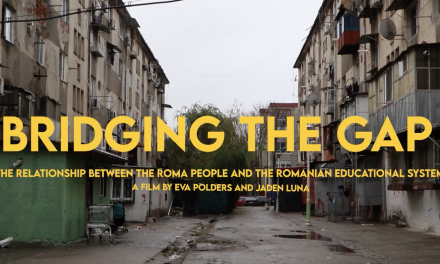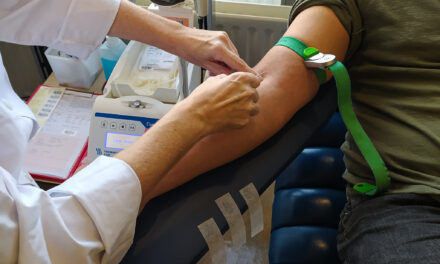As long as there are humans living on this planet, there are people who menstruate, month after month. It should be the most normal thing, right? Unfortunately not, in a Dutch survey conducted by plan international,it became clear that 36 percent of a thousand girls between the age of 12 and 25 years old, did not have a good experience with their first menstrual period. And 31 percent felt ashamed during their first period. So, even though blood comes out of vaginas for more than thousands of years, we still have to say that the menstrual cycle is a ‘taboo’. Maaike Muntinga, medical anthropologist, teacher and researcher metamedica of the Amsterdam UMC created the #period in 2019 to openly talk about period taboo, she explains why this subject is so important to her and why this taboo is still alive.
Links below lead to full the interview fragments
“When I was younger, I just couldn’t do the things I wanted to do. There will always be this one thing that will prevent me from doing my job well”. Muntinga has been confronted with actual period pain from a young age during her period. Almost every person who menstruates experience menstrual pain, it’s, unfortunately, part of the deal. But when the pain is outrageous and you can barely work or even stand up, if this is the case, it’s the right time to see the general practitioner. Menstrual pain is called dysmenorrhea and there are two types, primary and secondary. The primary dysmenorrhea is more common and can be experienced before and during the menstruation. If the pain during the years increases, we talk about secondary dysmenorrhea. This could lead to endometriosis, a painful condition where cells from the lining of the uterus start growing in other parts of the body, for instance, the ovaries. According to endometriosis.org, more than 170 million people with uterus experiences this condition.
After seeing the GP Maaike found out that she had a type of endometriosis, but this process took very long. The taboo around menstruation is important for her because “when people with uteruses experience a lot of trouble, they have to oftentimes find out what’s going on themselves and there is very little space to discuss amongst each other”. She also mentions that visiting the doctor not always help because they often do not know how to help you.
The root of this situation
What exactly is the taboo? “I think it’s a very gendered taboo, the social relationship between men and women plays a role.” According to Maaike, it has to do with how people with a uterus or women are being socialised to be ‘nice’ and ‘attractive’ and to care about other people, for instance, men or the parents. “It’s not that those lessons are taught in school, but they are culture lessons you learn along the way. And then talking about menstruation, it is very present, very raw, it’s gross and smelly. It makes you want to care only about yourself. It’s not the nice body, the male gaze that men would like to have. But it is the reproductive body as to how we say it in anthropology.”
A taboo like this one walks around the planet for a long time. Anna Dahlqvist wrote in her book “it’s only blood: shattering the Taboo of menstruation” that the shame of menstruating is universal, and the silence is a global rule. People who menstruate seen as women are ‘used’ to behave friendly, pure and caring. “We have to struggle with hiding our menstruation, worry about being exposed, and feel ashamed when it happens.”
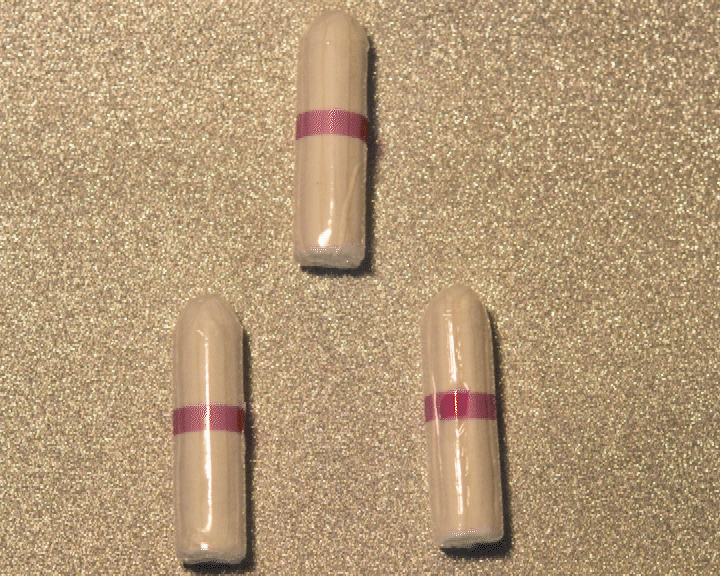

The patriarch system
How do we keep the taboo alive? Muntinga: “There is a stigma we all keep in place; we don’t want to complain or be that person who always complaints about
their shit. We want to be tough but why do we want to be tough? Why do we, as women feel like we need to pretend that we are fine when we are actually not?” That is because, what I think, the system in which we work and live is a patriarch system, in my opinion, well not in my opinion; it is.”
This statement is also seen in the current school system. Peter de Vroed, initiator of the Men-struatie voorlichtingsinstituut (menstruation information institute) gives workshops about menstruation and for everyone with questions about this subject. “We give these workshops mainly because school systems are quite masculine, young girls are not taken into account in the current systems”. According to Maaike, not only society system is made or designed by man but also everything around us like schools, buildings and houses.
According to Peter, 86% of young girls in the Netherlands indicate that, in high school, their needs are not sufficiently taken into account. With ‘needs’ we mean using the bathroom when you need or almost being obliged to participate in the gym classes. “Gym teachers ‘learn’, during their study, that it’s ‘good’ to exercise during periods. But in fact, they don’t have any idea how it feels to do sport during a menstrual period. During the menstrual period, a human body keeps 46% of its energy, would you like to do sports with this low amount of energy?
What’s normal?
Men-struatie voorlichtingsinstituut,is an organisation that provides informational workshops for everyone who has questions about the menstruation cycle. Peter de Vroed, together with Ank Verhagen, is the initiator and their office is based in Eersel, which is around 25 minutes from Eindhoven. After a 1.5-hour drive, we parked the car at the driveway in front of Peter’s house, ring the bell and enter the office, which is next to the house, meet Peter and drink a cup of tea while talking about the current taboo. “We receive questions mainly about what to do with the menstruation complaints. A lot of women assume that all their complaints are ‘normal’. They visit the general practitioner, which will give the advice to use the oral conceptive pill and that all the information they get.” After Peter’s girlfriend experienced a lot of menstrual complaints, together they wanted to find an alternative and asked their selves ‘what could we do differently’?
Peter also asked the question: ‘what do you need’, his girlfriend gave one answer; rest. This rest and calmness influenced her menstrual period immediately. Instead of heaving menstrual pain for about eight days it became only four days and sometimes even 1.5 days. During research with around 500 women about the menstrual cycle, Peter realised there are a lot of women who have no idea of their menstrual cycle and what is ‘normal’ and not. But after all the research, investigations and even writing books, it didn’t work out. There are so many people who still don’t understand the menstrual cycle. So, Peter and his girlfriend bought a device to simulate the menstrual cramps by sticking stickers in the lower abdomen. “More than 220 women who tested this device have indicated that the device gives the same feeling as usual menstruation cramps”. With this device, everyone can feel what it is like to have menstrual cramps and that is exactly what we need to give attention to the menstrual cycle.
For this interview with Peter, I brought my sis male friend Maurice with me. He, of course, never felt what it is like the have a menstrual period. To let him feel this, Peter asked me to bring Maurice to let him feel the menstrual cramps by using a simulation device. One of Maurice’s first reactions was “oh, it’s rough to have to go thought this every month”. We were just starting. “It feels like a lot of pressure, this cannot be healthy”, at this point the simulation device was only at 15%. Maurice ended up at 65% which I think is a decent percentage.
School system
The institute also provides workshops for teenagers from the age of 14 in high school. They explain what kind of symptoms there are, how they arise and what can be done about it. “The purpose of the workshop is to increase the awareness of the differences between male and female bodies.” Peter also gives explanation about the oral contraceptive pill because, in his opinion, there is not enough information given to girls who start using the pill. But even more important, according to Peter, is to inform them of what they put exactly in their bodies and what kind of consequences there are.
As I explained before Peter has a menstruation simulation device where everyone who want, can feel what it is like to feel cramps. The high school kids can try the menstrual period simulation to this. “They are all sensibly enthusiastic about the simulation and all the information we give them. If you don’t involve boys and man in this menstrual situation, it will always be a woman’s ‘thing’ and you keep this taboo about it”. If you would let man support and understand what a menstruator feels during periods, they go along with it.
To ‘solve’ the taboo problem according to Peter, we have to educate young people about what a menstrual cycle is and how it could feel like. And this is where the Dutch government comes in. In addressing the second chamber, the Ministry of medical care asked some questions about the period poverty in The Netherlands. Secretary of state Bas van ‘T Wout let know that to break the taboo, primary and high school are required to give more attention to sexual health and diversity and that, according to him, there are several lecture methods in which there is enough attention to menstrual wellbeing. Van ‘T Wout also adds that professionals such as the GP’s could provide advice. Opinions are divided about this.
Another solution is to almost reduce patriarchy in society. According to Peter, it’s quite simple, body differences. In a society, as we have now, we are trying to equal genders and that is something I very stand for. But there will always be a difference in people with or without a uterus. “At this point, we all are functioning like we have a male body, and that something wrong. If we keep expecting women to live their lives like man, they constantly have to step over their own boundaries”. Peter tells that it should be okay to say ‘no’ or ‘not today’ sometimes, for instance, to work-related situations. “What is more important than your body, health and wellbeing”? Almost nothing but in current society as now, it is almost impossible to say this.“That’s who we keep the taboo, it’s like a circle. We want to break this.”

